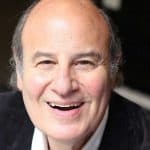by Samuel Dishon
Classical saxophone is a unique field to enter. The saxophone itself was not invented until the mid-19th century, so it has not yet found a steady position in the modern orchestra. There are far more opportunities for jazz saxophonists than classical saxophonists, and it is no secret that the music industry is competitive.
I think that anyone considering studying classical saxophone at a collegiate level should consider their commitment to the art form as a whole. No one should enter this field for only financial rewards. One should be extremely committed to progressing the level of this relatively new form of music and representing the classical saxophone scene as a whole through their work. The classical saxophone field is small, so there are definitely expectations on every classical saxophonist to represent the art form as a whole.
That being said, if one is committed and willing to take on this responsibility, studying classical saxophone in college will be a rewarding experience. At a college or conservatory, students will have weekly private lessons with faculty members, and have the chance to participate in numerous performance opportunities such as quartets, saxophone ensembles, and bands. These examples will continue to present themselves throughout the professional career of a saxophonist, so it is important to begin them at a collegiate level under the guidance of a professional.
What are the Educational and Career Opportunities for Classical Saxophonists?
Classical saxophone is a new and growing field. Most other classical musicians can find career options in the orchestra or in other performing fields. These opportunities are more rare for saxophonists, but there are growing opportunities for classical saxophone performance.
Many classical saxophonists work in the education industry, ranging from elementary school teachers to college professors. Generally a doctorate degree is required to get the most sought-after professorship positions, which can take around seven to nine years of college education. This is a big investment, but the majority of professors do have a doctorate degree – even teachers at small, local colleges.
Teaching is undoubtedly a large part of any saxophonist’s career, even if they take a less traditional approach to their career. For example, many saxophonists, even those who earn a doctorate, enter into other musical fields that do not involve performance. Some players work in the instrument repair and development industry, or pursue a conducting position, while others work in the music research field. While it is possible to have a career involving primarily performance, these related careers keep many classical saxophonists busy in today’s music scene.
Well-known Classical Saxophone Music
In order to study classical saxophone you should be well-versed in its best applications. I’ve put together a playlist of pieces I believe any classical saxophonist should be aware of, many of which have had a notable impact on my life and playing.
Classical Saxophone Playlist, a playlist by Al Gentile on Spotify
We and our partners use cookies to personalize your experience, to show you ads based on your interests, and for measurement and analytics purposes. By using our website and our services, you agree to our use of cookies as described in our Cookie Policy.
Famous Classical Saxophonists
Along with being aware of the music that defines your style of playing, any classical saxophonist should be aware of the artists that paved the way for them. Here’s my short list of some of the best classical saxophonists who left a lasting impression on my career. You’ll find both a link to find out more information, and a link to some of their music on Spotify:
Listen to Marcel Mule on Spotify here.
Listen to Sigurd Rascher on Spotify here.
Listen to Eugene Rousseau on Spotify here.
Listen to Arno Bornkamp on Spotify here.
Listen to John Worley on Spotify here.
Listen to Amy Dickson on Spotify here.
Listen to John Harle on Spotify here.
Listen to Ellie Appe here.
Listen to Linda Bangs here.
Listen to Greg Banaszak here.
Best Saxophone Schools
This list is a compilation of universities in the United States that are generally known to be at the top of the classical saxophone pedagogy. While there are numerous strong programs at other universities (in the US and abroad), these are widely regarded as some of the strongest.
University of Michigan
Notable Professor: Timothy McAllister
Notable Information: First US university to offer saxophone degree, extremely strong band program, attracts international students
Northwestern University
Notable Professor: Tamuir Sullivan
Notable Information: Very strong music program in general, extremely strong band program, very possible to pursue a double major
Indiana University
Notable Professor: Otis Murphy
Notable Information: Historical saxophone school with a long record of esteemed professors, a reputation for being a strong music school, many collaboration opportunities with different instruments, strong quartets and ensembles
Eastman School of Music
Notable Professor: Chien-Kwan Lin
Notable Information: Extremely strong music school and conservatory lifestyle, strong band program, Eastman Saxophone Project – famous saxophone ensemble that every student participates in
University of Texas at Austin
Notable Professor: Stephen Page
Notable Information: Strong band program, many job opportunities in Austin and Texas in general, Texas music education scene is strong
Arizona State University
Notable Professor: Christopher Crevsiton
Notable Information: Very strong quartets and ensembles, students are placing well in competitions, strong band program
Founder & President at Inside Music Schools | Insidemusicschools.com
Head of admissions and faculty member at Berklee College of Music for 40 years, Steve Lipman and our team at Inside Music Schools speak music as their primary language. We approach each client contact with open eyes, ears, and minds. As the country’s premier music school consultant, he has advised students from the United States, Canada, the U.K., India, Singapore, Dubai, China, Australia, Turkey, Colombia, Argentina, Brazil, Japan, Israel, Italy, Russia and elsewhere.

